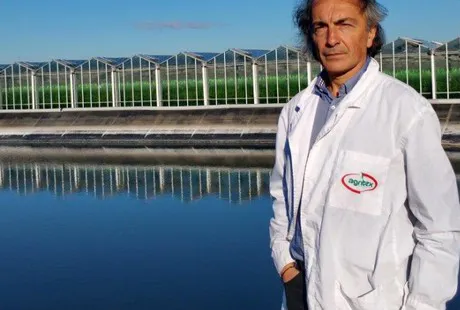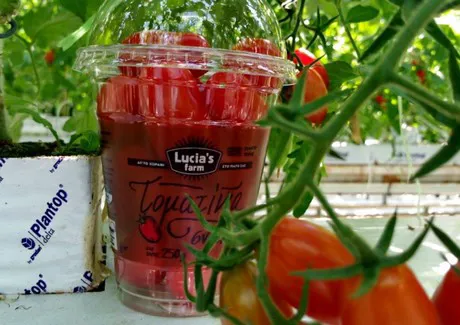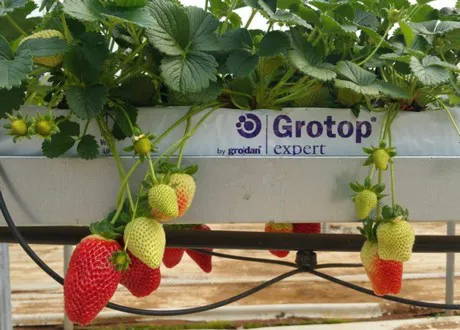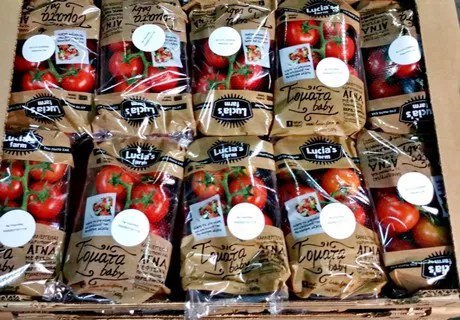Katsanos works for the DKG Group, a company that has been guiding investors with turn key agricultural development for more than two decades. In the past, Katsanos' group realized large scale commercial greenhouse projects in Greece, but ever since the country's crisis it has been quiet.

Christos Katsanos
"Many think that this is due to the crisis, but there is more to it. For over the past years, horticulture and agriculture have been no interesting industries to invest in due to the scratch of EU subsidies that covered up to 35% financing of agricultural project development. New legislation limited these grants to a maximum of 500,000 euros, which made it far more attractive to invest."
Katsanos explained that this has slowed down investments in greenhouse horticulture. A pity, he says, because Greece provides great opportunities at the moment. "We currently see many opportunities in the market. Despite the crisis the prices for vegetables remained stable and are very attractive for greenhouse growers. We are talking about average pricing of more than a euro per kilo for standard tomatoes and up to 4 or 5 euros per package in the snacking tomato category."
According to Katsanos, the latter category has created a market of its own. "There is a lot of interest for snacking tomatoes with smart packaging (shakers, clamshells) and branding. These premium tomatoes are especially trendy among youngsters, parents and schools who like to give their children a healthy snacking alternative. This all creates opportunities for investment."

Greek snacking tomatoes are in favour
This is also the reason that some existing Greek growers did expand, even during the crisis. One of them was a tomato grower in the north of Greece who expanded with 5 ha of snack tomato crops. Another big grower of standard tomatoes shifted towards snacking tomatoes. Katsanos and his DKG were also involved in the development of a 3 ha project for the mid-tech cultivation of hydroponic strawberries. "This was a grower who made a shift from field production and took his production from the ground and placed it into substrate into more convenient and protected environment."

Strawberries are making a move towards production on gutters
These are just two examples that show that the Greek industry has not been sitting still in times of recession. And Katsanos believes that there are more factors that will give a positive impulse to the Greece agricultural industry.
"First of all the banking system is getting back on track. The Piraeus Bank currently plays a leading role with their contemporary Contract Farming Programme." This initiative is part of the Bank’s wider strategy to support and modernise the agricultural sector, so it can grow into a strong pillar that fosters the growth of the Greek economy.
Another major impulse will be the current changes in Greek retail. The bankruptcy of Carrefour's Marinopoulos in March 2016 caused a lot of financial damage to producers, leaving them with no large outlet to market their products. But since March 1, the 500 supermarkets are reopened by the Sklavenitis chain. "This will also improve the trade and marketing of the fruit and vegetables. It is promising for the market, especially as Sklavenitis provides room for premium products."

Changes in Greece retail provide chances for products in the premium category.
Katsanos expects that all of these factors will bring change on the horizon for agricultural development in Greece. "There are many investors who have plans, but unfortunately everybody is anxious to make any moves as the situation is not stable enough yet. Nonetheless, I am very positive at this stage and really hope that the upcoming reforms, also on the side of the government, will further enhance the investment climate and stabilize our economy."
 For more information:
For more information: DKG GROUP
Christos D. Katsanos (e-mail)
5 b, Ioustinianou street
551 34 , Thessaloniki
HELLAS (Greece)
Τel: +30 2310 488.915
Fax: +30 2310 488.916
www.dkggroup.com
